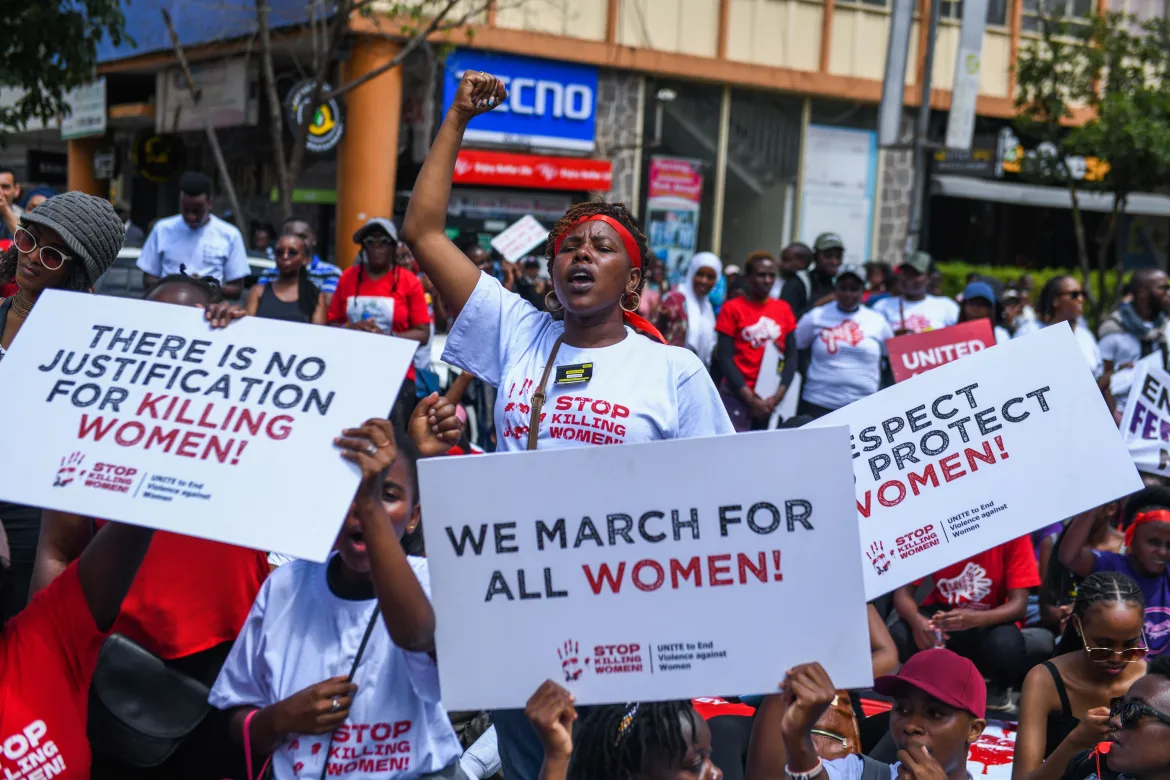In recent years, Kenya has faced a disturbing surge in femicide, the gender-based killing of women. This crisis has ignited widespread protests and demands for urgent action to protect women’s lives and rights.
Alarming Statistics
Rising Incidents: Between September 2023 and January 2024, over 100 women were reported killed, primarily by individuals known to them.
Underreporting Concerns: The “Silencing Women” project documented more than 930 female murders in Kenya, with 628 cases meeting the United Nations Office on Drugs and Crime’s definition of femicide.
High-Profile Cases
The tragic death of Olympic marathon runner Rebecca Cheptegei in September 2024 underscores the severity of the crisis. Cheptegei was set on fire by her ex-partner after enduring prolonged abuse, despite multiple reports to authorities. Her death highlights the risks successful women face from predatory men and the systemic failures in protecting victims.
Public Outcry and Protests
On January 27, 2024, thousands marched in Nairobi and other major cities, demanding an end to femicide and gender-based violence. Protesters carried placards with messages such as “Stop Killing Us!” and “We Are Human Beings,” emphasizing the urgent need for action.
Government Response
In response to mounting pressure, the Kenyan government declared gender-based violence a national security threat. A specialized police unit was established to combat femicides, and a presidential working group was formed to propose measures to curb gender-based violence.
Challenges and Cultural Factors
Deep-seated patriarchal norms and societal attitudes contribute to the perpetuation of violence against women. Activists emphasize the need for comprehensive legal reforms, public awareness campaigns, and community engagement to address the root causes of femicide.
Conclusion
The escalating femicide crisis in Kenya demands immediate and sustained action from all sectors of society. Protecting women’s lives requires not only legal and policy reforms but also a transformative shift in cultural attitudes toward gender and violence.









